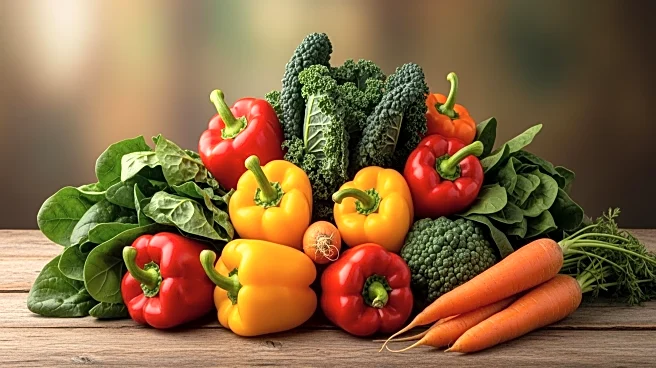What's Happening?
The Women's Rugby World Cup is set to conclude with a highly anticipated final match between England and Canada at Twickenham Stadium. The event is expected to draw a record crowd of 82,000 spectators, marking a significant milestone for women's rugby. England's team, known as the Red Roses, is aiming for a fairytale finish, while Canada poses a formidable challenge with their quick ruck ball game and offloading ability. The tournament has been characterized by its inclusive and festive atmosphere, with fans engaging in various activities such as Bon Jovi singalongs and fancy dress parties. England's Ellie Kildunne has emerged as a key player, showcasing her skills with impressive solo tries in the semi-final against France.
Why It's Important?
The final match at Twickenham represents a pivotal moment for women's rugby, highlighting the sport's growing popularity and potential for long-term legacy. A sold-out stadium and widespread television viewership underscore the increasing interest in women's sports, which could lead to greater investment and development in the future. The event also serves as a platform for promoting gender equality in sports, challenging traditional male-dominated events. The success of the tournament may inspire more young women to participate in rugby, contributing to the sport's expansion and diversification.
What's Next?
Following the final, the focus will shift to the potential impact on women's rugby in terms of increased visibility and support. Stakeholders, including sponsors and sports organizations, may explore opportunities to capitalize on the tournament's success by investing in grassroots programs and professional leagues. The outcome of the match could influence future strategies for promoting women's rugby globally, with England and Canada potentially serving as role models for other nations.











